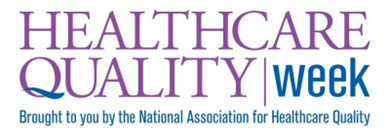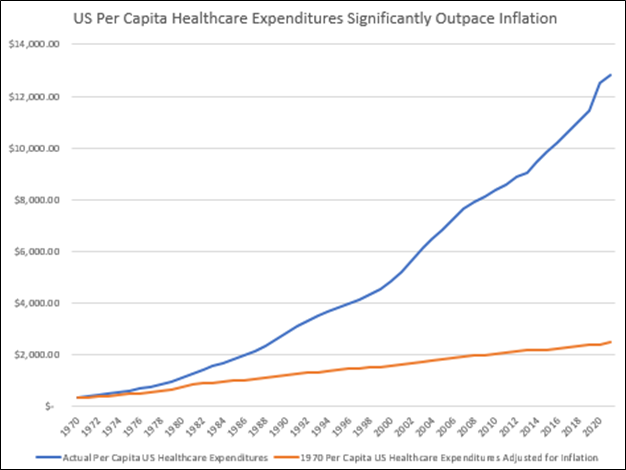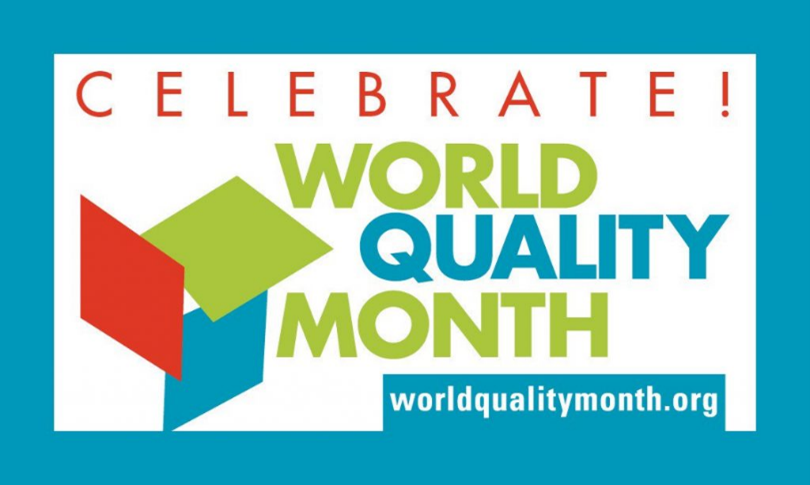By Steve L. Evener, MPH; Vanessa Hunter, MHSA; & Le’Dice W. Murphy, MS
The National Association of Healthcare Quality (NAHQ) established Healthcare Quality Week in 1985 and has been observing it ever since. This year, Healthcare Quality Week is set for October 15–21. Healthcare Quality Week celebrates the work healthcare and quality professionals do to improve the quality of care patients receive in healthcare settings.

Quality of care measures how well the services patients receive increase their chances of having better health outcomes. Healthcare services include clinical and clerical tasks performed by medical staff, health insurance companies, and other healthcare organizations that provide additional assistance. Some examples of these services include:
- Interactions with doctors and medical staff
- Technologies used to schedule appointments, store medical data, and file claims
- General procedures that explain how a healthcare organization performs daily tasks
NAHQ created the Healthcare Quality Competency Framework that includes eight areas of quality that healthcare and quality professionals should focus on. These include Professional Engagement, Quality Leadership & Integration, Performance & Process Improvement, Health Data & Analytics, Population Health & Care Transitions, Regulatory & Accreditation Definition, Patient Safety, and Quality Review & Accountability.
The United States spends much more money on healthcare than any other country. A part of healthcare quality aims to make sure we get the best possible care and outcome for the amount of money we spend. This includes care that reduces our chances of getting sick, removes barriers that prevent us from receiving medical care, and improves our overall health and quality of life. Over the past 50 years, the United States has increased the amount of money spent on healthcare. The Peterson-KFF Health System Tracker shows healthcare spending in the United States has increased from $74.1 billion in 1970 to $4.3 trillion in 2021. The chart below compares individual healthcare costs in 1970 with costs of today. The chart takes into account inflation and the change in population. In 2021, each person in the United States spent approximately $13,000 on healthcare.

The healthcare industry uses different standards based on who is paying for healthcare services to guide quality improvement. The payor can be the patient, an insurance company, or a government assistance program. Quality improvement processes are also based on the type of healthcare system. Different players in healthcare measure quality for different reasons. For example, hospitals focus on the quality of various aspects of care compared to insurance companies because they perform different jobs. In addition, not all hospitals define quality goals in the same way. Some hospitals might compare themselves to other local hospitals, while other hospitals might only focus on what they can do to improve their own internal efforts. Insurance companies might focus on safety and affordability, while researchers might want to better understand healthcare safety or use among different people. Quality Assurance professionals use the Agency for Healthcare Research and Quality (AHRQ) Quality Indicators (QIs) to analyze data that help identify any areas in need of quality improvement. There are four modules that assess the quality of care adults receive in hospital settings (Inpatient Quality Indicators), the quality of care children and adolescents receive in hospital settings (Pediatric Quality Indicators), the quality of care received in ambulatory settings that help prevent hospitalizations (Prevention Quality Indicators), and the quality of care aimed at preventing complications and errors for hospitalized adults (Patient Safety Indicators).
Karna currently manages the business areas of the World Trade Center (WTC) Health Program (HP) and has a Quality Management Team responsible for making sure that we provide high quality services. The Team conducts internal reviews of the WTC HP to find any opportunities for improvement. The reviews guarantee members of the WTC HP receive excellent care and that services maintain the integrity of the program.
The WTC HP is a federal health program that provides medical care to first responders and survivors with health conditions related to the 9/11 terrorist attacks in New York and Shanksville, Pennsylvania, and at the Pentagon. Responders and survivors who are enrolled in the WTC HP receive treatment at no cost to them for their WTC-related health conditions. Members in the New York Metropolitan Area receive care through the eight Clinical Centers of Excellence (Icahn School of Medicine at Mount Sinai; NYC Health + Hospitals; City of NY FDNY Responder Clinics; Northwell Health; NYU Grossman School of Medicine; SUNY, Stony Brook, Williams Street Clinic; and Rutgers, SUNJ). Each of these CCEs maintains their own quality programs as healthcare providers. In addition, members that live outside of the New York Metropolitan Area, and those who travel south in the Winter, have access to a Nationwide Provider Network.
Though Healthcare Quality Week occurs during the month of October, the American Society for Quality (ASQ) celebrates and observes World Quality Month during the month of November. World Quality Month highlights the importance of quality management in organizations across different industries. This was originally celebrated in Japan, as Dr. W. Edwards Deming, Dr. Joseph Juran, Genichi Taguchi, Ishikawa family, and JUSE are credited with the post-war introduction of quality concepts and management to Japan that expanded and revolution quality throughout the world. The objective of World Quality Month is to encourage organizations to focus on continuously improving their processes, products, and services for enhancing customer satisfaction. We have several activities planned, so look forward to receiving communication from Karna’s Quality Team.


